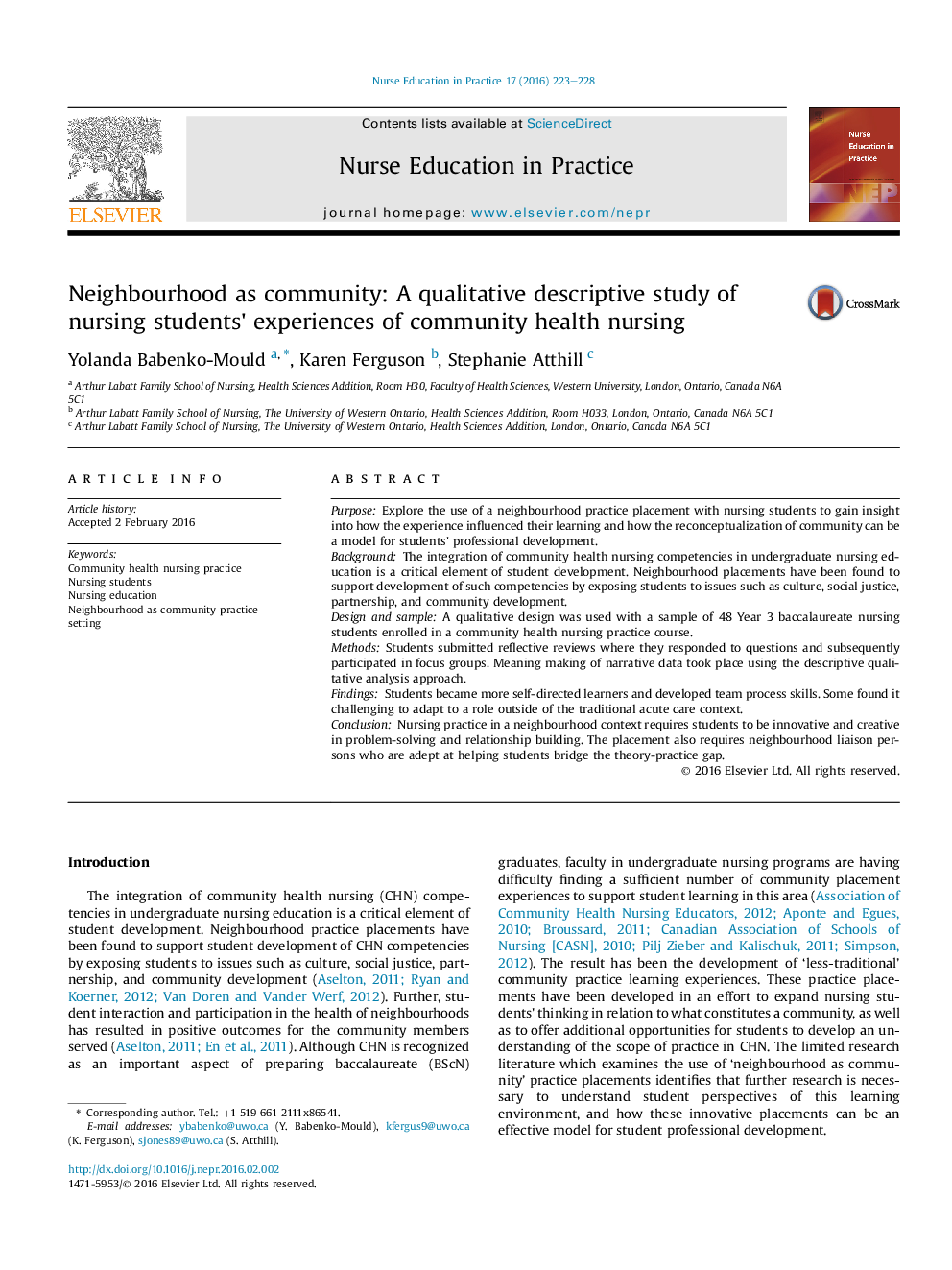| Article ID | Journal | Published Year | Pages | File Type |
|---|---|---|---|---|
| 366689 | Nurse Education in Practice | 2016 | 6 Pages |
•Role clarity is key to supporting students' confidence for practice.•Students experienced broad engagement in community development.•Students learned how to navigate in a less-traditional community practice settings.
PurposeExplore the use of a neighbourhood practice placement with nursing students to gain insight into how the experience influenced their learning and how the reconceptualization of community can be a model for students' professional development.BackgroundThe integration of community health nursing competencies in undergraduate nursing education is a critical element of student development. Neighbourhood placements have been found to support development of such competencies by exposing students to issues such as culture, social justice, partnership, and community development.Design and sampleA qualitative design was used with a sample of 48 Year 3 baccalaureate nursing students enrolled in a community health nursing practice course.MethodsStudents submitted reflective reviews where they responded to questions and subsequently participated in focus groups. Meaning making of narrative data took place using the descriptive qualitative analysis approach.FindingsStudents became more self-directed learners and developed team process skills. Some found it challenging to adapt to a role outside of the traditional acute care context.ConclusionNursing practice in a neighbourhood context requires students to be innovative and creative in problem-solving and relationship building. The placement also requires neighbourhood liaison persons who are adept at helping students bridge the theory-practice gap.
